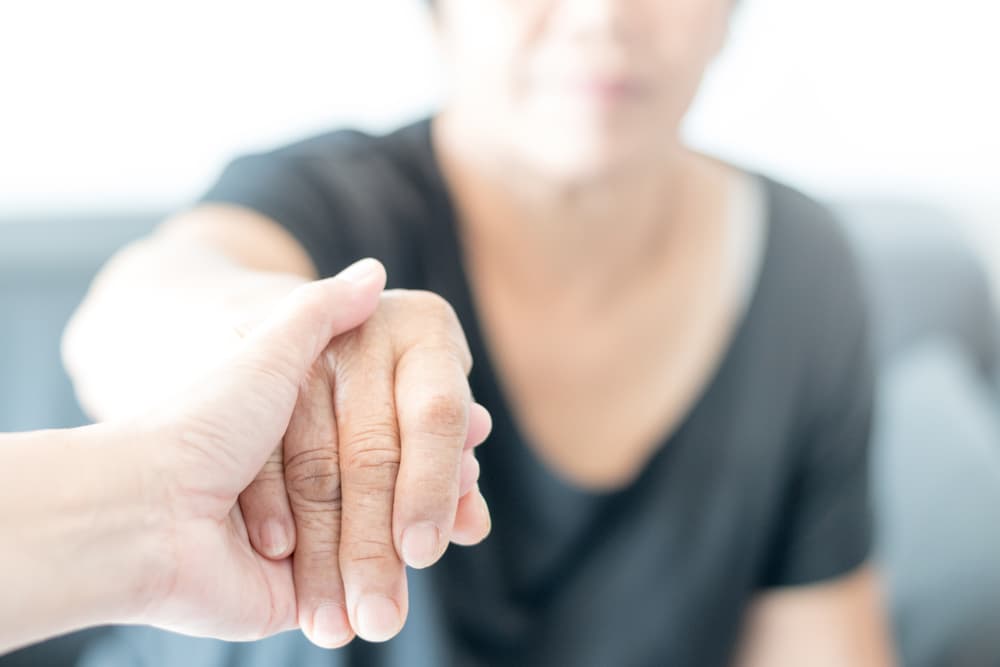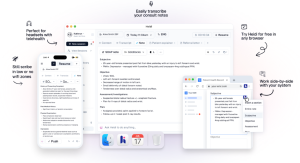7 Signs It’s Time to Consider Home Care for a Parent with Alzheimer’s

No one builds a career, a family, or a life expecting to navigate Alzheimer’s. And yet here you are—balancing meetings and medical visits, spreadsheets and symptoms, trying to hold it all together. The toughest part isn’t logistics. It’s knowing when support has shifted from helpful to necessary.
Families often wait too long to seek help, holding out for “one more month” of managing things solo. But early action offers more than relief—it protects dignity, routines, and peace of mind. The key is knowing what signs matter most, and what they signal. If you’re noticing the patterns below, it might be time to bring in professional home care support.
1. Repeated Confusion Around Time, Place, or People
A forgotten appointment or name happens to everyone—but Alzheimer’s creates patterns, not just isolated moments. If your parent is asking the same questions every hour, getting lost in familiar places, or forgetting who someone is just minutes after meeting them, it’s more than typical aging.
These patterns can be frightening for both sides. And without proper support, they often lead to accidents, panic attacks, or unsafe wandering. A structured care environment helps re-anchor their world. It gives them predictability—and gives you space to breathe again.
2. Sudden Shifts in Personality or Mood
Alzheimer’s doesn’t just affect memory—it alters personality. A parent who was once calm might become anxious, agitated, or even combative with no obvious trigger. These emotional swings are often misunderstood by family members who aren’t trained to recognize disease-driven behavior.
Having a professional around who’s trained in dementia care can change everything. They can de-escalate tension before it erupts and build positive daily routines that promote emotional stability. It’s not about “fixing” them—it’s about meeting them with calm, consistent care.
3. Missed Medications or Inconsistent Health Routines
Forgetfulness can quickly turn into danger when medications are skipped or doubled up. Some clients arrive at a crisis point—hospitalized after a missed dose or interaction—simply because no one was there to guide daily routines. And by then, the cost of waiting becomes clear.
Professional caregivers provide medication reminders and wellness check-ins without making your parent feel micromanaged. That combination of oversight and empathy matters. Because you’re not just managing pills—you’re managing safety, stability, and long-term wellness.
4. Changes in Eating Habits or Weight Loss
Alzheimer’s can dull hunger cues, increase anxiety around cooking, or lead to forgotten meals altogether. If your parent is skipping meals, losing weight, or making unsafe food choices, it’s time to act. These signs often get chalked up to “they’re just tired” or “not hungry,” but they’re red flags.
Support from trained caregivers can bring nutrition back on track. With help planning meals, preparing food, and offering gentle prompts, many seniors regain energy and appetite. Mealtime becomes an opportunity—not a risk.
5. A Home That’s Slipping Into Disrepair or Clutter
Is unopened mail piling up? Laundry not being done? Spoiled food in the fridge? These small clues speak volumes. A once-orderly home can quickly turn chaotic as memory and executive function decline.
What looks like neglect is often the result of overwhelm. One of the advantages of compassionate home care in Chicago for aging parents is that it provides light housekeeping services designed to restore calm and cleanliness—without shame or judgment. It’s not about perfection; it’s about safety, dignity, and pride in their living space.
6. Withdrawal From Social Activity or Hobbies
Seniors with Alzheimer’s often retreat from activities they once loved. That book club, religious service, or neighborhood walk becomes “too much,” even when they can’t quite explain why. As confusion increases, so does isolation.
Home care doesn’t just keep people safe—it keeps them engaged. A professional companion can encourage hobbies, facilitate social connections, and ensure your parent still feels like themselves, even as things change. That emotional connection is just as critical as the physical care.
7. Caregiver Burnout or Family Friction
Even the most devoted family members can’t do it all—especially while working full-time or raising kids. The weight of caregiving can strain relationships, tank productivity, and trigger resentment. If you’re arguing more often, skipping your own appointments, or constantly feeling guilty, it’s time to reassess.
Here’s where home care shifts from “nice to have” to “essential.” Bringing in help isn’t giving up—it’s ensuring everyone stays intact. A caregiver supports your parent, and protects you from emotional exhaustion and physical burnout.
What to Watch For—And What to Do Next
If you’re noticing signs like these, you’re not alone—and you’re not failing. These aren’t just quirks of aging; they’re signals that cognitive decline is quietly shifting the balance of independence and safety. At some point, it becomes clear that love alone isn’t enough to cover the demands of daily care. What’s needed is consistency, professional guidance, and support that respects both your parent’s dignity and your own limits.
You may start to notice these red flags gradually, or they might show up all at once:
- Repetitive questions or confusion in familiar settings
- Missed medications or unusual weight loss
- Changes in hygiene or cleanliness at home
- Escalating emotional outbursts or fearfulness
- Caregivers skipping work, canceling plans, or losing sleep from stress
These signs don’t mean it’s time to take everything away—they mean it’s time to bring the right kind of help in. Home care offers a way to bridge the gap between where your parent is and where they need to be. With flexible, compassionate care, families don’t have to choose between independence and safety. They get both—without sacrificing their own well-being to make it happen.
When Help Feels Like a Lifeline, Not a Loss
The right support doesn’t replace you—it frees you up to be who you are to your parent again. A daughter. A son. A spouse. Not just a scheduler, a driver, or a crisis manager.
When that shift happens, everything feels different. If you’re ready to talk about how care could look without pressure or overwhelm, Ace Home Care brings professionalism and heart to every conversation. You’ve done so much already. Now let someone help carry it with you.



